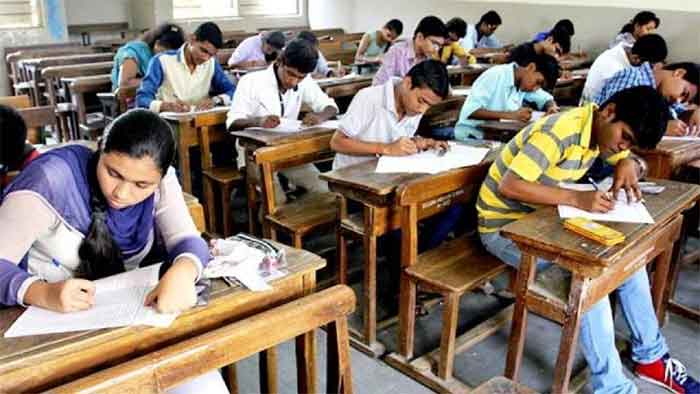
‘To Kill a Mocking Bird‘
This novel by Harper Lee published in 1960 – which focusses itself on a white lawyer Atticus Finch’s rather lonesome struggle for justice for a black young man who has been falsely accused of rape of a white girl, in a town ‘steeped in prejudice, violence and hypocrisy’ has mesmerised generations of readers and even inspired scores of people to fight against racial exploitation and oppression.
Rated by top librarians of the world as a must read book, this is the same book which also tops the list of books which has faced ban / challenged in US schools for various reasons.( https://medium.com/feedium/banned-books-list-2649e56db929)
This phenomenon has seen quite a spurt in recent years.
Leading titles have faced court cases after claims that they are unfit for young readers (https://www.telegraphindia.com/culture/books/banned-books-week-fighting-for-freedom-of-information/cid/1887499) Such a situation has created stifling atmosphere within schools, inhibited free expression of views on various subjects and has seriously affected the students constitutional rights to freedom of speech or expression at the schoolhouse gate. The ensuing climate also undermines the teachers and librarians when it comes to issues of public education and also inhibts a free dialogue between them and the parents.
Situation within India – which these days loves to portray itself as ‘Mother of Democracy’ – is not qualitatively different from the ‘strongest’ democracy in the world but rather worse.
Right from the fact that what student should wear and not wear or what they should eat or not eat, or what songs / prayers they recite or not or what festivals they celebrate in the school campus, every other issue dealing with their lives is being made contentious. Arbitrary changes in their syllabus – without caring for pedagogical methods or consultation with experts in the field – which basically confirm the supremacist world view of the ruling dispensation are increasingly being normalised.
The latest changes in the NCERT textbooks – from Standard 6 th to 12 th – where students are being provided with fresh textbooks much on the eve of the beginning of their new sessions, which are basically edited / censored versions of the earlier textbooks, is a case in point. It has created a tremendous sense of disquiet and anger among academia and has also given rise to protests from political-social formations.
All these deletions, censoring in the textbooks have been executed under the spacious claim that it is a ‘rationalistion of their textbooks’ and are being implemented to reduce ‘burden on the students’.
As per reports culled from various publications , apart from period of Delhi Sultanat, Mughal Period or discussion around caste, one sees a conscious attempt to sanitise killers of Gandhi or the Hindutva Supremacist organisation(s) involved in the conspiracy to kill the Mahatma or even delete discussion around 2002 riots etc – which had then created uproar at the national and international level. Whether this specific deletion has to do with the fact that the then Prime Minister of India – who belonged to the same political formation as the Chief Minister of the state then – had in no uncertain terms upbraided him in public for not observing ‘Rajdharma’
As an aside one can recall how these Gujarat killings had prompted publication of more than 45 reports prepared by National and International Human Rights groups and had severly impacted the image of India then at international level.
Anybody can see that not much thought has been given to the so called rationalisation of books.
For example, take the case of Gandhi’s assasination in full public view and the longtime conspiracy by the Hindutva organisations to eliminate him and volumes of books which have appeared around it and are still appearing, whether ‘sanitisation’ of his killers and the organisations involved would help them in any way.
Or take the case of culling of discussion about Mughal Period , the same textbook do contain discussion around Vijayanagar Empire. For a neutral reader such projection will be a very imbalanced presentation of India’s past and s/he can easily construe that medieveal India does not have a past of composite heritage but a ‘Hindu Past’.
There is reason to believe that it has been done deliberately to give a particular slant to India’s past and butteress the Hindutva Supremacist viewpoint.
Nobody can deny that rewriting of history is a continuous process ‘where historian brings to bear new methodological or ideological insights or employs a new analytical frame drawn upon hitherto unknown facts.'((http://web.archive.org/web/20060109123200/http://www.stanford.edu/group/sia/Events/Panikkar_speech .pdf) but this culling operation of textbooks prepared by academics and experts of various fields and concerns – may be by some bureaucrat in the NCERT or some appartchik belonging to the Sangh Parivar is basically a violation of that spirit.
By the way the neither in US nor in India, this banning/ challenging or censoring of books in general and textbooks in particular is a spontaneous affair. One can easily disern strong presence of conservative, exclusivist groups peddling a very sectarian agenda.
For example, studies and reports by PEN America and others point out about involvement of organised groups, some of whom peddle Christian nationalist views or oriented towards imparting more religious education to students ( https://pen.org/report/banned-usa-growing-movement-to-censor-books-in-schools/)) and few amongst them even owing allegiance to the Rightwing Trumpist politics.
Scores of reports are available about involvement of rightwing Hindutva formations at the societal whose worldview very much resonates with the supremacist politics of the ruling dispensation which in effect has furthered a majoritarian-authoritarian agenda.
Perhaps their hatred for the ‘other’ is so rabid or their worldview which veers around ‘Outsider as Enemy’ ( (http://web.archive.org/web/20060109123200/http://www.stanford.edu/group/sia/Events/Panikkar_speech .pdf)) is so intense that they have no qualms that the whole exercise of ‘rationalisation of textbooks’ basically refurbishes the colonial narrative first put forward by the Scottish philosopher, Economist in his book ( 1818) titled ‘ History of British India’ which periodised India’s history into Hindu period, Muslim period and British period.
For Mill, who like many of his ilk considered British conquest of India as a ‘civilising mission’ and who portrayed Indian society as morally degraded this narrative served the colonial regime well. because – disregarding the actual developments in history, the emergence of a composite heritage and also bonhomie between the various communities at various levels – it peddled the view how Hindus and Muslims have been at loggerheads with each other throughout history.
Subhash Gatade is a left activist associated with New Socialist Initiative













































